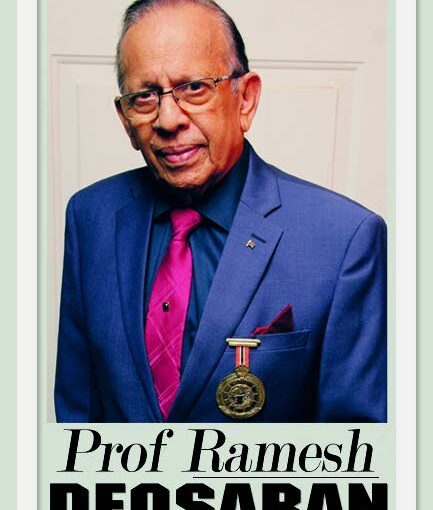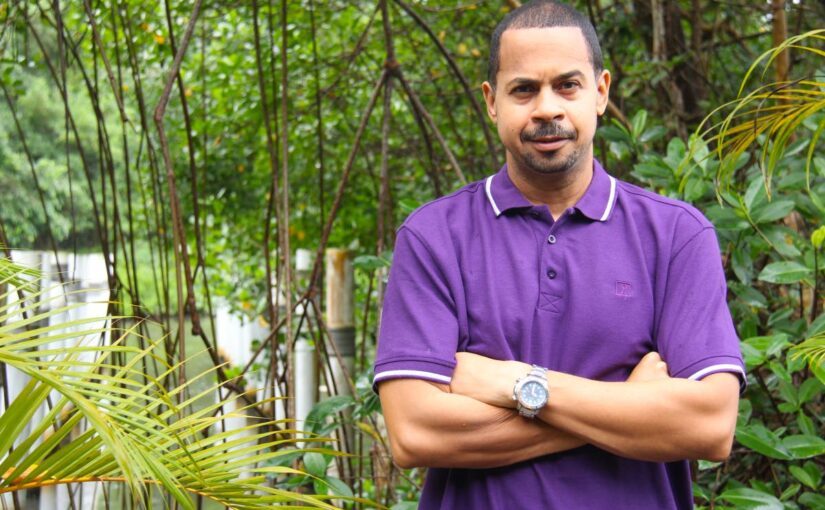It was always clear that Ethiopia’s false historical narrative would one day catch up with it. The country that was Abyssinia and adopted...
Vous n'êtes pas connecté
- English
- Français
- عربي
- Español
- Deutsch
- Português
- русский язык
- Català
- Italiano
- Nederlands, Vlaams
- Norsk
- فارسی
- বাংলা
- اردو
- Azərbaycan dili
- Bahasa Indonesia
- Հայերեն
- Ελληνικά
- Bosanski jezik
- українська мова
- Íslenska
- Türkmen, Түркмен
- Türkçe
- Shqip
- Eesti keel
- magyar
- Қазақ тілі
- Kalaallisut ; kalaallit oqaasii
- Lietuvių kalba
- Latviešu valoda
- македонски јазик
- Монгол
- Bahasa Melayu ; بهاس ملايو
- ဗမာစာ
- Slovenščina
- тоҷикӣ ; toğikī ; تاجیکی
- ไทย
- O'zbek ; Ўзбек ; أۇزبېك
- Tiếng Việt
- ភាសាខ្មែរ
- རྫོང་ཁ
- Soomaaliga ; af Soomaali
Rubriques :
 Maroc - EURASIAREVIEW.COM - A la une - 27/Jun 16:22
Maroc - EURASIAREVIEW.COM - A la une - 27/Jun 16:22
The Horn Of Africa States: Unleashing Potential Of Region’s Youthful Population – OpEd
Almost every adult in the Horn of Africa States region is probably a politician - an ethno-politician.; Ethnicity appears to be the main yardstick to measure a person, as to where one comes from, what tribe or clan one belongs to. No other measure, ideology, competency, and/or any other discerning factor seems to be employed in the Horn of Africa States region to filter people for jobs, careers, killing, abuse, election/selection for positions of power, and, indeed, for managing a society. It is a sad story, of course, which has placed the Horn of Africa States where it is in terms of economic performance, development, and standing among nations – on the lower scales. Conflicts and violence is the main culprit which forces young men and women either to fight, flee, and/or remain under the yoke of some bloke politicians, which keep the region unstable. The misgovernance in the region, the lack of transparency, the misappropriation of whatever meagre resources there were, for the benefit of a small group of people, leads most youth of the region to the same issues of either playing a part in the death and destruction going on in the region or migrating away through any means, even if it has to be through cruel human traffickers in search of greener pastures to be able to support their families. Climate has not been kind to the region either. It was already a precarious region where most rains are only in the western highlands with the eastern lowlands receiving smaller rains. The global warming resulting from the activities of industrialized richer countries has added to the plight of the region. Many of the region’s population earned their living through nomadic pastoralism, which the urbanization process of the region has greatly constrained in addition to the worsening weather patterns in the region. Climate, therefore, also remains a major factor in the poor performance of the region. The region lives off subsistence farming and nomadic pastoralism. A small portion of the population is urbanized, although this has been growing lately at high speed. A still smaller percentage of the population of the region is involved in fishing and marine life activities. Just so to avoid any confusion, in the article we always refer to the Horn of Africa States as consisting of the SEED countries of Somalia, Ethiopia, Eritrea and Djibouti. There are no detailed hard statistics related to the region and the numbers and percentages thereon are the estimations and calculations of the author. It is however clear that the region’s populations is mostly youthful, which is generally reported to be in the region of some seventy (70) percent as under thirty years of age as each of the four countries highlight in their statistics. It is a large population which needs to be directed, managed, and organized. This will, of course, require the deployment of the necessary infrastructures and institutions not only to raise them well, educate them, train them and then deploy them for the further development of the region. Unfortunately, the region’s elite leadership has always been involved in wars against each other, using the growing youthful population as fodder for the fires they build. It is a region which has experienced most inter-state and intra-state wars not only in Africa but also across the globe over the past half century or even more. The inter-state wars of the region included Ethio-Somali wars of 1964/5, the 1977/78 and 2006/2009; the Ethio-Eritrean war of 1998/2000; and the Eritrean-Djibouti war of 2008. The intra-state wars in Somalia and Ethiopia and even in Eritrea and Djibouti are uncountable. The region is full of a labyrinthine chains and networks of tribes and clans, each of which seems to be angry at the next. It was not always like that but the last three to four decades have been most disturbing. Perhaps its proximity to one of the main shipping routes and hence international trade riverways from the Indian Ocean to Europe via the Suez Canal contributes to the region’s endless disturbances. But then this can only bear part of the blame. The rest is regional and must squarely be placed at the door of the pseudo-elitist few who live off the backs of their poor brethren and sisters - the region’s population. The old blame game of colonial rule has already been refuted by the only indigenous state in the continent which refused to let the Europeans in. The pseudo-elites who have controlled the region and who still control it through their tribal/clan grapevines and fake politics, remain the main culprits of the harm being done to the youth of the region.; The doublespeak they deploy and the crocodile tears they shed on behalf of the tribes/clans are actually not true and the populations know it. The irony is that the tribal/clansman, while knowing that the politicians would not help them in any way, still support them for some unknown, unmeasurable tribal/clan pride. What is the benefit for a poor person who is from the same tribe or clan if that person has no welfare covering at least his/her food, clothing, shelter, healthcare or education for his/her children? And the list can go on and on. The ruling elites have turned the region into a laboratory where young personnel from the foreign ministries of other countries practice their trade and hence abuse not only the ruling people but also the region and countries. It is most unfortunate to note that while knowing what some Gulf countries have done to others, a few in the neighborhood included, the region’s leaders still receive them with smiles stretching from ear to ear. It is part of human nature to take advantage of every opportunity and when another country observes that the region is not fully prepared to protect its interests, others will have ambitions on it. The interests of others include the youth of the region, who are being enticed through a fistful of dollars to fight on behalf of other countries in distant lands or get involved in other equally illegal activities. This is not much different than the slave trade of several centuries ago but appears to have been modernized. It is the onus of the region’s leaders to address these matters. Peace and good governance are the key elements of the management of any nation or region and it is where the leadership of the region needs to focus on, coming down from the tribal/clan pedestals they have originally climbed. They must know they are the leaders of the countries and the region and they should not let it down. A fair and equitable system installation would do the trick. This would lead to educating the youth, training them and giving them skills that would not only be useful for their personal development but for the states and region. This would empower communities with the necessary skills, which they will use to exploit the God-given resources of the lands and seas of the region. It is growing the opportunities and reducing the tribal/clan troubles that would unleash the potential and energy of about seventy percent of a population of 160 million in that vast region of about 2 million sq. km.
Articles similaires
A Critique Of Latin American Neocons – OpEd
By Marina Rocha In attempting to counter Marxists, some libertarians inadvertently align themselves with statist institutions and...
Demographic Winter Chills: East Asian Military Might: China, Japan, South Korea Face Recruitment Hurdles – OpEd
Falling birthrates in East Asia are causing concerns over whether the region’s military forces will be able to maintain their troop levels in...
Is The Middle Corridor The Best Alternative For EU-Asia Trade? – Analysis
The;Middle Corridor;AKA the Trans-Caspian International Transport Route, is a multimodal transport corridor connecting China to Europe. At over...
West Asleep At The Wheel At The Dawn Of ‘Cold War 2’ – Analysis
By Nicola Stoev The Soviet-China partnership at the beginning of Cold War, and the present quasi-alliance between China, Russia, Iran, and North...
Are we culturally trapped?
THERE is a big media war now on directly related to the Russia vs Ukraine and the Israel vs Hamas wars and the Global South initiative, which aims to...
The UNC's setting sun
Paolo Kernahan POLITICS, it’s said, is the art of the possible. Politics, however, is also the illusion of choice; a choice usually between two...
How The US Can Beat The Kremlin In Moldova – Analysis
By Peter Rough and Luke Coffey (FPRI) -- Russia’s large-scale invasion of Ukraine was a seismic event for the Republic of Moldova. The war...
Israel Should Be Banned From Olympics Just Like Russia – OpEd
Russia and Belarus have both been banned from participating in the 2024 Paris Summer Olympics because of their involvement in the war on Ukraine. So...
Russia: Who Ordered Torture Of Jehovah’s Witness Prisoner Of Conscience?
By Victoria Arnold Jehovah's Witness Rinat Kiramov, who is serving a 7-year sentence in Tula Region to punish his exercise of freedom of religion...
Les derniers communiqués
-
Adobe Brings Conversational AI to Trillions of PDFs with the New AI Assistant in Reader and Acrobat
Adobe - 21/02/2024
-
Laura Frigenti takes the Helm as Chief Executive Officer of the Global Partnership for Education
Global Partnership for Education - 05/12/2022

